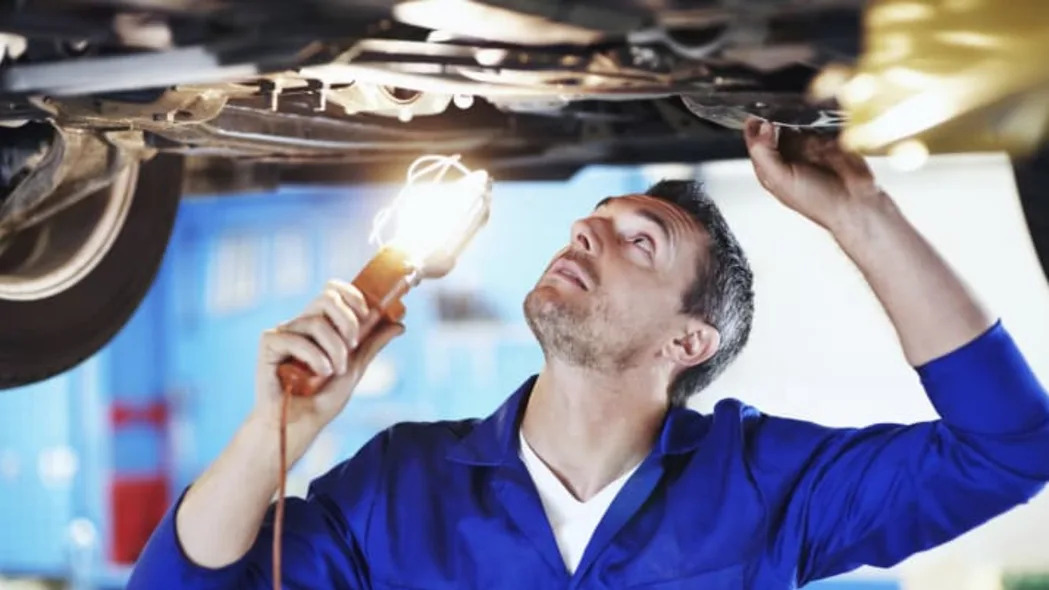A lot of people shopping for a used car will see a nice picture online and simply "buy with their eyes." They fall in love with what they see, not what lurks deeper within, such as the ownership history, the overall mechanical condition, and the potential long-term maintenance issues.
I have seen this take place too many times in my work buying and selling cars over the years. Most folks will pay the most money for that perfect-looking car – even if its past may not be nearly as beautiful as the recently primped paint job and the lavishly shampooed interior. Appearance is what sells most cars, and all this attention is paid to it for one very unfortunate reason related to you, the buyer.
When car shoppers buy from our dealership for example, very few of them ever request an inspection by an ASE-certified mechanic. They assume that all potential issues can be heard and experienced by just turning the key and going on a test drive. Why? Because that used car now looks virtually showroom new. They assume the used car is just as good as the new car. Nothing could be further from the truth. In order to buy a great used car, whether from a dealer or an individual, you need to give yourself the opportunity to do some diligent research and to hand over the keys to an expert before signing on that expensive dotted line. So how can you dot all your i's and cross all your t's?

Research
Nothing beats doing your homework before you invest your free time in seeing a stranger's car. The cheapest insurance you can ever have will come from asking the owner a few well chosen questions before ever driving all the way out to see that car. If you're satisfied with the answers, don't run out the door just yet. Now is the time to get an ownership history record for the vehicle and figure out what all that history really means.
Carfax has an advantage when it comes to piecing together the maintenance history for most late-model vehicles. Unlike other vehicle history providers, Carfax has the means of accessing dealership maintenance records from thousands of franchise dealers and independent repair shops throughout the United States. But don't just use that history report to confirm your love for a given vehicle. No accidents means nothing if that car has been damaged by flood, fallen victim to a Lemon Law buyback, or has another title floating around out there. Study that history and find out from the enthusiast forum for your given model whether there is upcoming maintenance or a potential weakness that may require your attention.

Inspection
There are professional certified mechanics who have spent their careers inspecting and repairing used cars. You? Probably not so much. If the car passes the first sniff tests of a good history and seems to be well-kept, go ahead and have the vehicle inspected by those who know more about cars than 99 percent of the general public. This will help you figure out the final piece of the puzzle when it comes to making your next car your best car.
Price
I have used a variety of "books" (now mostly websites) over the years that appraise the value of used cars. Some are better than others, but I recommend always looking at private party value. When you price out the vehicle, do yourself a big favor and focus on the condition of the car and make sure to add or deduct features.
Do not use the trade-in price. This is because most dealerships (and a few individuals) have to go through the process of repairing and reconditioning vehicles before they're sold. This can be anything from replacing a set of tires, to performing a minor mechanical repair, to repairing all those dings, dents, and scratches that typically come with owning a car for years on end. After the vehicle is inspected, you will get an estimate for repair work that will help you deduct from this retail price.
If you want the best used car you can buy for your hard-earned money, it comes down to three simple steps.
I have seen this take place too many times in my work buying and selling cars over the years. Most folks will pay the most money for that perfect-looking car – even if its past may not be nearly as beautiful as the recently primped paint job and the lavishly shampooed interior. Appearance is what sells most cars, and all this attention is paid to it for one very unfortunate reason related to you, the buyer.
When car shoppers buy from our dealership for example, very few of them ever request an inspection by an ASE-certified mechanic. They assume that all potential issues can be heard and experienced by just turning the key and going on a test drive. Why? Because that used car now looks virtually showroom new. They assume the used car is just as good as the new car. Nothing could be further from the truth. In order to buy a great used car, whether from a dealer or an individual, you need to give yourself the opportunity to do some diligent research and to hand over the keys to an expert before signing on that expensive dotted line. So how can you dot all your i's and cross all your t's?

Research
Nothing beats doing your homework before you invest your free time in seeing a stranger's car. The cheapest insurance you can ever have will come from asking the owner a few well chosen questions before ever driving all the way out to see that car. If you're satisfied with the answers, don't run out the door just yet. Now is the time to get an ownership history record for the vehicle and figure out what all that history really means.
Carfax has an advantage when it comes to piecing together the maintenance history for most late-model vehicles. Unlike other vehicle history providers, Carfax has the means of accessing dealership maintenance records from thousands of franchise dealers and independent repair shops throughout the United States. But don't just use that history report to confirm your love for a given vehicle. No accidents means nothing if that car has been damaged by flood, fallen victim to a Lemon Law buyback, or has another title floating around out there. Study that history and find out from the enthusiast forum for your given model whether there is upcoming maintenance or a potential weakness that may require your attention.

Inspection
There are professional certified mechanics who have spent their careers inspecting and repairing used cars. You? Probably not so much. If the car passes the first sniff tests of a good history and seems to be well-kept, go ahead and have the vehicle inspected by those who know more about cars than 99 percent of the general public. This will help you figure out the final piece of the puzzle when it comes to making your next car your best car.
Price
I have used a variety of "books" (now mostly websites) over the years that appraise the value of used cars. Some are better than others, but I recommend always looking at private party value. When you price out the vehicle, do yourself a big favor and focus on the condition of the car and make sure to add or deduct features.
Do not use the trade-in price. This is because most dealerships (and a few individuals) have to go through the process of repairing and reconditioning vehicles before they're sold. This can be anything from replacing a set of tires, to performing a minor mechanical repair, to repairing all those dings, dents, and scratches that typically come with owning a car for years on end. After the vehicle is inspected, you will get an estimate for repair work that will help you deduct from this retail price.
If you want the best used car you can buy for your hard-earned money, it comes down to three simple steps.
- Research the history and potential ownership issues beforehand.
- Inspect the car. Don't drive with your eyes! Get an expert mechanic who can see all those things you can't.
- Price the vehicle based on private party value, adjust for the vehicle's condition, and make sure to deduct any needed repairs.


Sign in to post
Please sign in to leave a comment.
Continue